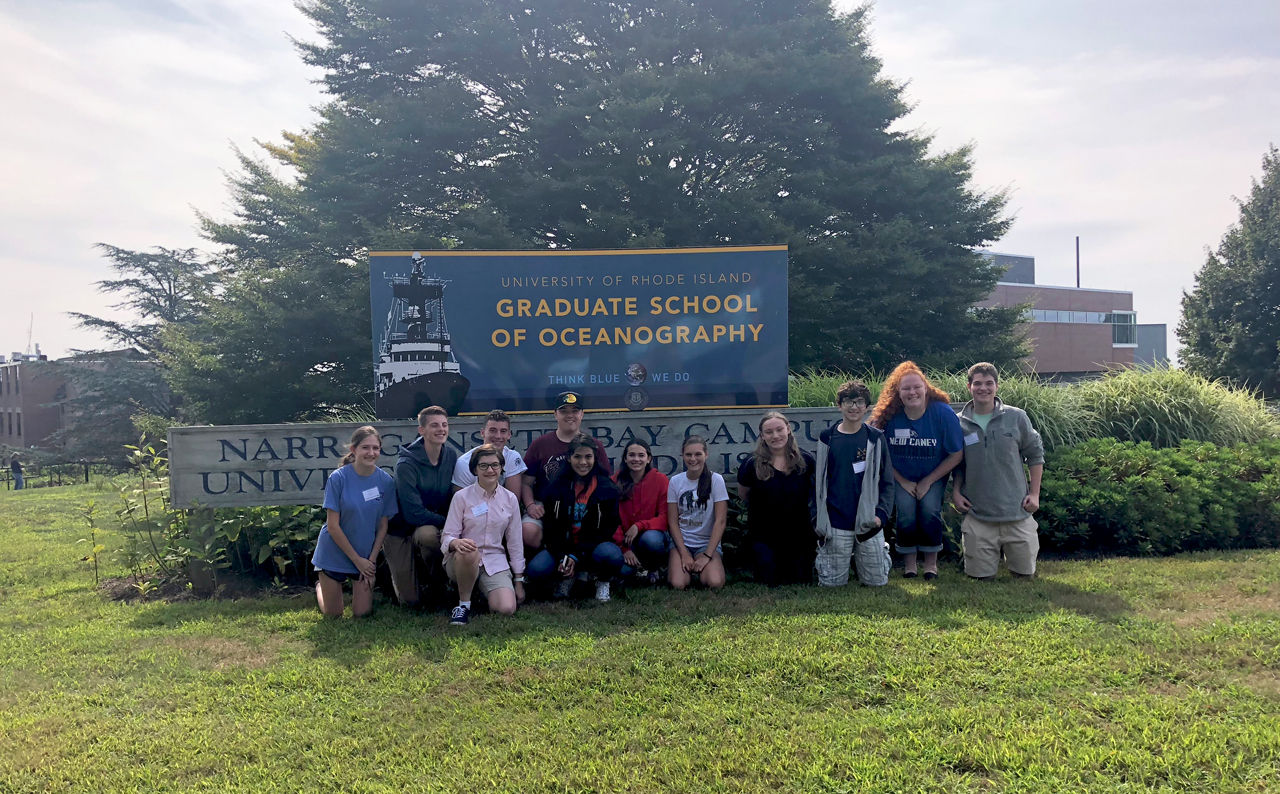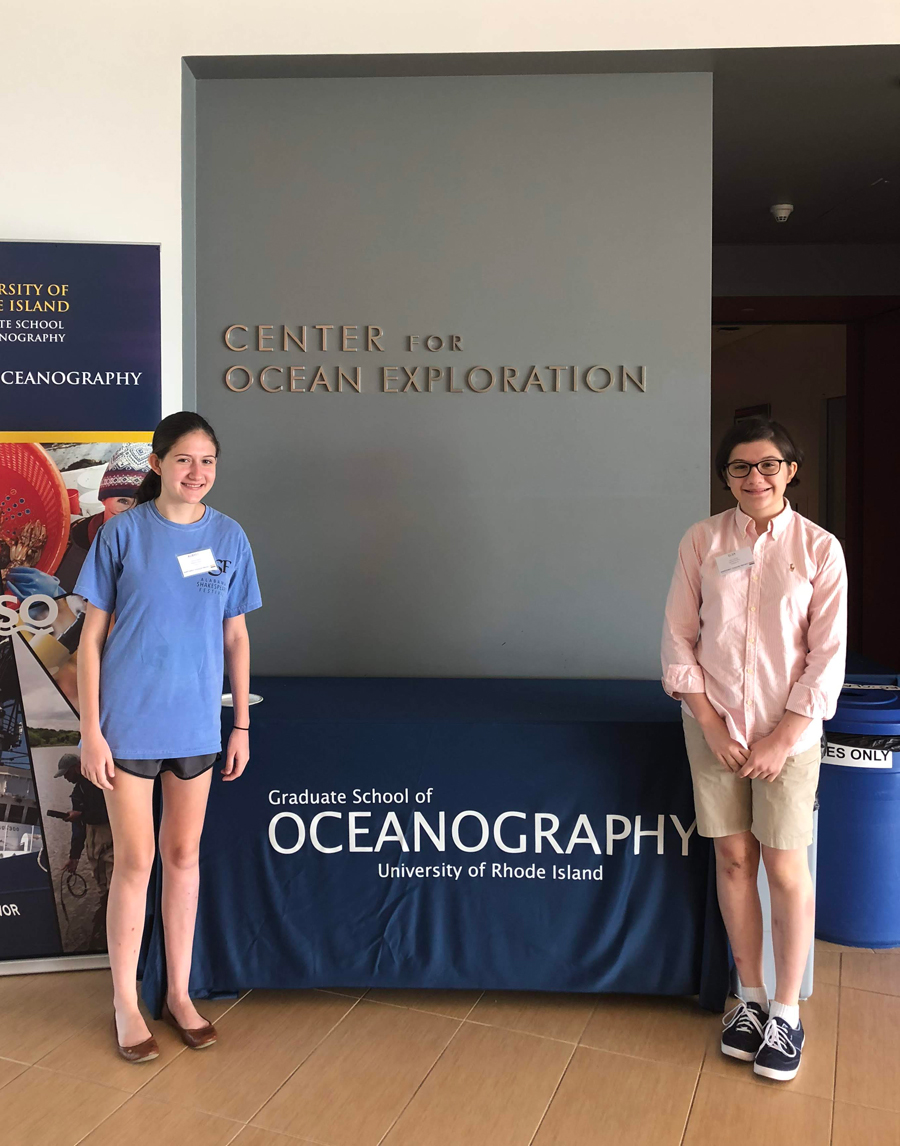
Participating in a research project is an honor that invokes excitement in any scientific scholar. Exploring the unknown and uncovering groundbreaking data in ever-changing fields is a constant thrill. Being selected to do so in a group from only a few states is even more honorable. To be the only two chosen in your entire region is profound. Especially as high school students not yet even committed to a field of research.
Students Elsa and Aubrey Engeriser and Dr. Megan McCall from Bayside Academy were invited on a research expedition of the Northwest Passage Project (NPP) at the University of Rhode Island (URI) from Friday, Aug. 24 to Monday, Aug. 27. They had the opportunity to explore the changing Canadian Arctic, collect data and gain valuable hands-on experience.
The Northwest Passage Project is a National Science Foundation-funded project that centers on a research expedition into the Arctic’s Northwest Passage. Because the Canadian Arctic is remote and expensive to access, they created an informal learning opportunity for the students with real-time interactions from the sea and an ultra-high definition 2-hour documentary. The URI Inner Space Center and Graduate School of Oceanography, the film company David Clark, Inc. and five U.S. universities collaborated to make the Northwest Passage Project possible. A total of 12 high school students from Alabama, Chicago, Florida, Texas and Rhode Island participated.
McCall is a STEAM – science, technology, engineering, art and math – coordinator for grades K-12. She previously had connections with URI from an Arctic expedition in 2007 and an Antarctic expedition in 2009, both with the ARMADA Project. She chose junior Elsa and senior Aubrey because of their involvement with oceanography at Bayside Academy. Both were on the National Ocean Science Bowl team as well as the Remotely Operated Vehicle team last school year, the latter of which Elsa was also the co-captain.
 Elsa and Aubrey both said their favorite experience was meeting other students from across the country and hearing lectures from different people involved in different areas of science like biologists, chemists and NASA working together to better the scientific community. The lectures included an overview of global climate change, an introduction to broadcasts and telepresence and the National Oceanic and Atmospheric Administration (NOAA) Okeanos exploration, among others.
Elsa and Aubrey both said their favorite experience was meeting other students from across the country and hearing lectures from different people involved in different areas of science like biologists, chemists and NASA working together to better the scientific community. The lectures included an overview of global climate change, an introduction to broadcasts and telepresence and the National Oceanic and Atmospheric Administration (NOAA) Okeanos exploration, among others.
“The best part was being able to bring the girls on the trip because I’ve been on different expeditions, but there has never been an opportunity that was funded for students to attend the expeditions,” says McCall.
Aubrey is a senior and is in the process of applying for colleges. She plans on going into the medical field. While Elsa is only a junior, she says she remains interested in oceanography studies.
The Northwest Passage Project included guests in different fields to iterate some of the practical elements behind scientific study. A communication major from the University of Illinois made a video of the students, because “scientists don’t live in a box,” says McCall. “They have to communicate things to the broader world.”
The Engeriser sisters will be giving a presentation on their Northwest Passage Project experience with Mr. Christopher Knowles of the InnerSpace Center at URI via telepresence connection. The presentation will be open to the public in the Pilot Center at Bayside Academy on Tuesday, Sept. 25 from 6:30 p.m. to 7:30 p.m.
Click here for more information about the Northwest Passage Project





